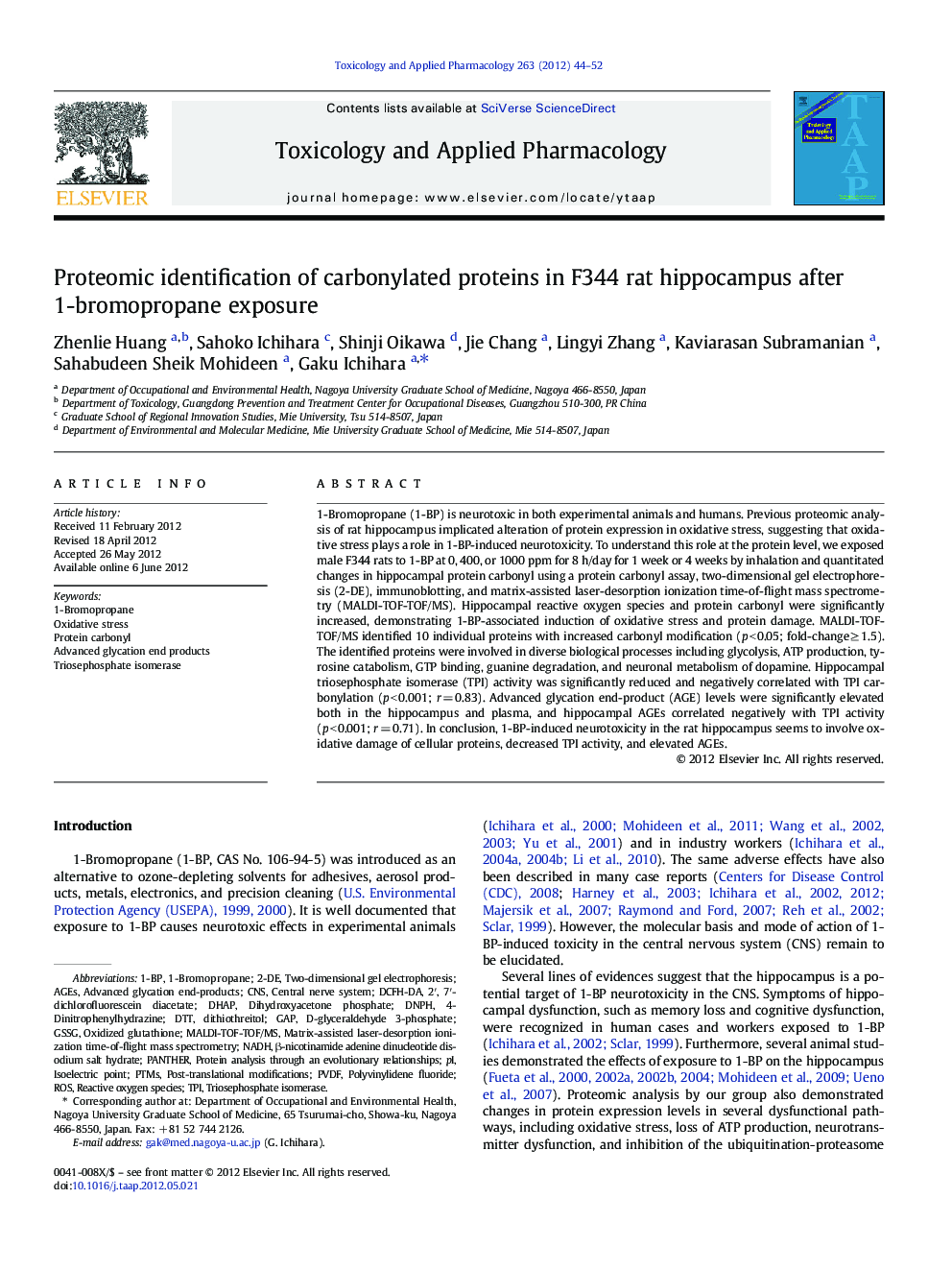| Article ID | Journal | Published Year | Pages | File Type |
|---|---|---|---|---|
| 2569267 | Toxicology and Applied Pharmacology | 2012 | 9 Pages |
1-Bromopropane (1-BP) is neurotoxic in both experimental animals and humans. Previous proteomic analysis of rat hippocampus implicated alteration of protein expression in oxidative stress, suggesting that oxidative stress plays a role in 1-BP-induced neurotoxicity. To understand this role at the protein level, we exposed male F344 rats to 1-BP at 0, 400, or 1000 ppm for 8 h/day for 1 week or 4 weeks by inhalation and quantitated changes in hippocampal protein carbonyl using a protein carbonyl assay, two-dimensional gel electrophoresis (2-DE), immunoblotting, and matrix-assisted laser-desorption ionization time-of-flight mass spectrometry (MALDI-TOF-TOF/MS). Hippocampal reactive oxygen species and protein carbonyl were significantly increased, demonstrating 1-BP-associated induction of oxidative stress and protein damage. MALDI-TOF-TOF/MS identified 10 individual proteins with increased carbonyl modification (p < 0.05; fold-change ≥ 1.5). The identified proteins were involved in diverse biological processes including glycolysis, ATP production, tyrosine catabolism, GTP binding, guanine degradation, and neuronal metabolism of dopamine. Hippocampal triosephosphate isomerase (TPI) activity was significantly reduced and negatively correlated with TPI carbonylation (p < 0.001; r = 0.83). Advanced glycation end-product (AGE) levels were significantly elevated both in the hippocampus and plasma, and hippocampal AGEs correlated negatively with TPI activity (p < 0.001; r = 0.71). In conclusion, 1-BP-induced neurotoxicity in the rat hippocampus seems to involve oxidative damage of cellular proteins, decreased TPI activity, and elevated AGEs.
► 1-BP increases hippocampal ROS levels and hippocampal and plasma protein carbonyls. ► 1-BP increases TPI carbonylation and decreases TPI activity in the hippocampus. ► 1-BP increases hippocampal and plasma AGE levels.
